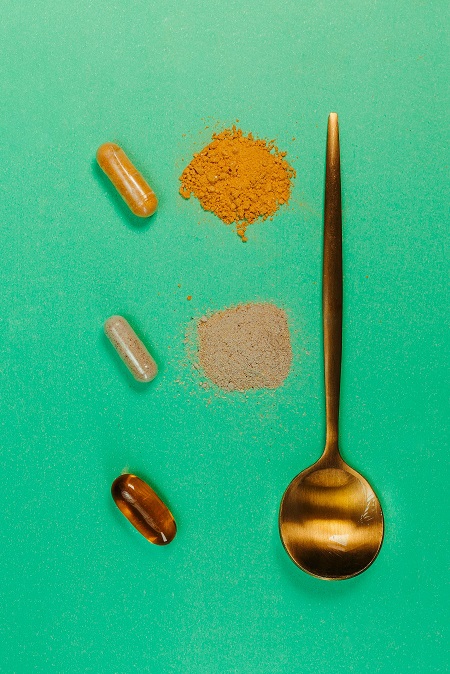In a world where modern medicine is often the first point of reference for health concerns, herbal remedies offer a natural alternative that can significantly enhance your well-being. Many cultures across the globe have been using plant-based solutions for centuries, and in recent years, science has started to validate what traditional knowledge has known all along: herbs can be powerful tools in maintaining health, boosting immunity, and alleviating common ailments.
Whether you’re dealing with chronic stress, digestive issues, or the need for an energy boost, there’s a herb for that. Here are the top 10 herbal remedies that could revolutionize your health starting today!
1. Ashwagandha: The Stress-Busting Super Herb

Stress is one of the most common health complaints in the modern world, and finding a natural solution can be a game-changer.An adaptogen that has been used for ages in Ayurvedic medicine to lower stress and boost general vigor is ashwagandha.
Ashwagandha works by regulating cortisol levels in the body, which is the hormone responsible for the stress response. By balancing cortisol, it helps your body cope with stress more effectively. Beyond stress relief, ashwagandha also promotes better sleep, boosts mood, and can improve mental clarity.
How to Use It:
- Ashwagandha supplements (500-1,000 mg daily)
- Powder form mixed into smoothies or warm milk
2. Turmeric: The Anti-Inflammatory Powerhouse
For good reason, turmeric has attracted a lot of attention lately.This vibrant yellow spice contains curcumin, a powerful anti-inflammatory compound that has been shown to help manage conditions like arthritis, digestive issues, and even depression.
The anti-inflammatory effects of turmeric can reduce pain, swelling, and discomfort associated with chronic conditions. It’s also known for its antioxidant properties, which help protect the body from oxidative damage.
How to Use It:
- Turmeric root or powder in cooking (add to soups, curries, or smoothies)
- Curcumin supplements (take with black pepper for enhanced absorption)
3. Peppermint: The Digestive Aid

If you’ve ever experienced indigestion, bloating, or nausea, peppermint may be the herbal remedy you need. Known for its soothing and cooling properties, peppermint has long been used to alleviate digestive discomfort and promote overall gut health.
Peppermint works by relaxing the muscles of the gastrointestinal tract, helping to relieve bloating and gas. It’s particularly effective in relieving symptoms of irritable bowel syndrome (IBS) and soothing upset stomachs.
How to Use It:
- Peppermint tea (1-2 cups per day)
- Peppermint oil capsules for digestive support
4. Echinacea: The Immune System Boost
When cold and flu season hits, many people turn to over-the-counter medications, but why not try a natural immune system boost? Echinacea is a well known herb that has been utilized for centuries to battle diseases and back the safe framework.
White blood cells, which are essential for protecting the body from infections, are thought to be stimulated by echinacea.Studies have shown that taking echinacea can reduce the severity and duration of cold symptoms.
How to Use It:
- Echinacea tea or tincture (start at the first sign of illness)
- Echinacea supplements (500 mg, 2-3 times per day)
5. Ginger: The Natural Pain Reliever
If you’re looking for a natural way to combat pain and inflammation, ginger is a must-have in your herbal toolkit. Ginger contains compounds called gingerols and shogaols that have powerful anti-inflammatory and pain relieving effects.
Adha, a natural pain reliever, is derived from herbal sources known for their anti-inflammatory and analgesic properties. Used in traditional medicine, it helps alleviate joint, muscle, and nerve pain without harsh side effects. Adha promotes healing by improving blood circulation and reducing swelling. Ideal for those seeking plant-based relief, it offers a gentle yet effective alternative to synthetic medications.
How to Use It:
- Fresh ginger in smoothies, teas, or stir-fries
- Ginger supplements (500-1,000 mg daily)
6. Chamomile: The Relaxing Herb
For those seeking a natural remedy for anxiety and sleep disturbances, chamomile is one of the best herbs to try. Chamomile has mild sedative effects, making it a popular choice for promoting relaxation and better sleep quality.
Chamomile tea is commonly used before bed to help calm the mind and prepare for a restful night’s sleep.It is also good for general health because it possesses antioxidant and mild anti-inflammatory qualities.
How to Use It:
- Chamomile tea (1-2 cups before bedtime)
- Chamomile extract or capsules for anxiety relief
7. Holy Basil (Tulsi): The Adaptogen for Balance
Another potent adaptogen that helps your body adjust to stress and rebalance your system is holy basil, sometimes referred to as tulsi.It’s widely regarded for its ability to support the adrenal glands, reduce inflammation, and regulate blood sugar levels.
Tulsi is also believed to improve mental clarity, support the respiratory system, and even have antimicrobial properties. It’s the perfect herbal for anyone feeling overwhelmed by the demands of daily life.
How to Use It:
- Tulsi tea (1-2 cups per day)
- Tulsi extract (500 mg daily)
8. Milk Thistle: The Liver Protector
Your liver plays a vital role in detoxifying your body, so keeping it healthy is essential for overall wellness. Milk thistle has been used for centuries as a liver tonic, with studies showing it can help regenerate liver cells and protect against toxins.It’s often used to support liver health, especially for people dealing with fatty liver disease or alcohol-related liver damage.Milk thistle, a flowering herb, is renowned for its liver-protective properties. Its active compound, silymarin, supports liver cell regeneration, combats inflammation, and neutralizes toxins. Commonly used as a supplement, it may
How to Use It:
- Milk thistle supplements (150-200 mg, 2-3 times per day)
- Milk thistle tea or extract
9. Lemon Balm: The Anxiety and Sleep Aid

If anxiety and sleeplessness are affecting your daily life, lemon balm is an herb worth trying. Known for its calming and soothing properties, lemon balm is often used to reduce stress, anxiety, and promote restful sleep.
Studies show that lemon balm can help improve mood and alleviate symptoms of anxiety, making it a gentle, natural remedy for those struggling with mental health issues.Lemon balm, a fragrant herb in the mint family, is widely used as a natural remedy for anxiety and sleep disorders. Rich in calming compounds, it helps soothe the nervous system, reduce stress, and promote restful sleep. Lemon balm is often consumed as tea or extract for gentle, effective relief.
How to Use It:
- Lemon balm tea (1-2 cups per day)
- Lemon balm extract or tincture
10. Rhodiola: The Natural Energy Booster
For those dealing with fatigue and burnout, rhodiola may provide the energy boost you need to get through the day. Rhodiola is another adaptogen that helps combat stress, improve mental clarity, and enhance physical stamina.
Studies have shown that rhodiola can improve performance in high-stress situations, making it ideal for athletes, busy professionals, or anyone struggling with low energy levels.
How to Use It:
- Rhodiola supplements (200-400 mg daily)
- Rhodiola tea or extract
Conclusion: Start Your Herbal Journey Today!
Incorporating these top 10 herbal remedies into your daily routine could dramatically improve your health and well-being. From reducing stress and improving digestion to boosting immunity and enhancing energy levels, these herbs provide natural solutions for a variety of common health concerns.
Before starting any new supplement regimen, it’s always best to consult with a healthcare professional, especially if you are pregnant, nursing, or taking prescription medications. These herbs can complement modern medicine, providing a holistic approach to health that could transform your life.
So why wait? Start exploring the world of herbal remedies today and discover how these powerful plants can help you feel better, live healthier, and thrive in all aspects of your life!
FAQ,
How does natural medicine support overall wellness?
Natural medicine emphasizes treating the root cause of illness, enhancing physical, mental, and emotional well-being rather than just suppressing symptoms.
Is natural medicine effective?
Yes, many natural remedies have been used for centuries and are supported by modern research for treating conditions like inflammation, anxiety, and digestive issues.
What is natural herbal medicine?
Natural herbal medicine involves using plants and plant extracts to treat and prevent illnesses, relying on traditional knowledge and modern research.
Is herbal medicine backed by science?
Some herbs, like turmeric, ginger, and garlic, are supported by scientific studies for their medicinal properties, though more research is still ongoing.
What are the benefits of using herbal medicine?
Herbal medicine can support immune health, reduce inflammation, relieve pain, and improve digestion naturally and gently.
Can herbal medicine work alongside conventional medicine?
Yes, many people use herbal remedies as complementary treatments, but it’s essential to consult a healthcare provider to avoid harmful interactions.
Why is natural medicine important?
Natural medicine is important because it offers holistic approaches that support the body’s healing processes with fewer side effects compared to synthetic drugs.
How does science study herbal medicine?
Researchers use clinical trials, lab tests, and chemical analysis to study the active compounds in herbs and measure their safety and effectiveness.
What does modern science say about the effectiveness of herbal medicine?
Modern science confirms that many herbs, such as turmeric, echinacea, and St. John’s wort, have proven health benefits backed by clinical research.
